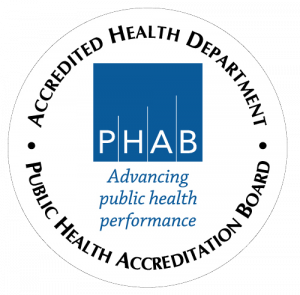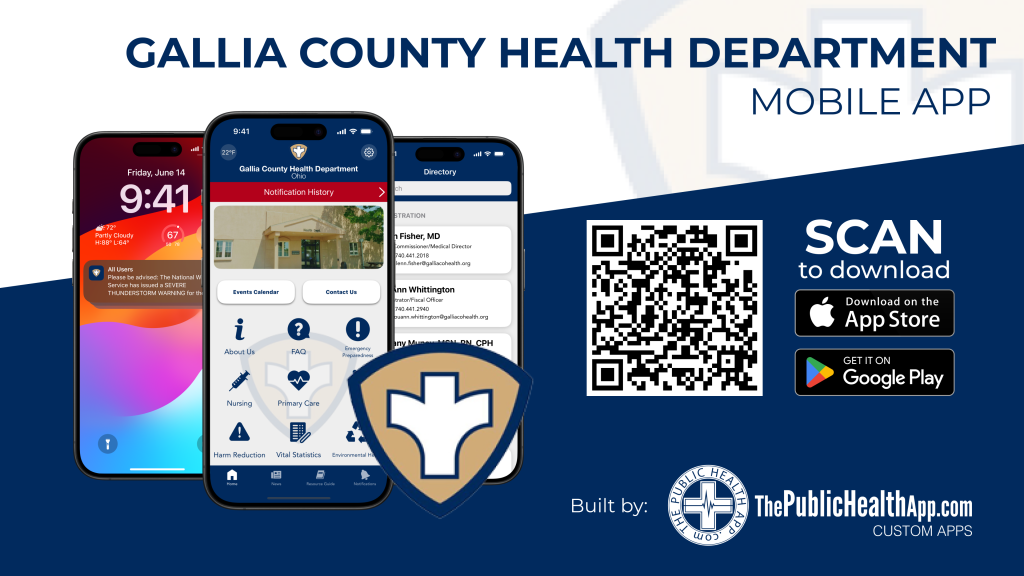Women , Infants , and Children (WIC)
WIC is the Special Supplemental Nutrition Program for Women, Infants, and Children.
WIC is the Special Supplemental Nutrition Program for Women, Infants, and Children. WIC helps eligible pregnant and breastfeeding women, women who recently had a baby, infants, and children up to 5 years of age.
The program improves pregnancy outcomes by providing or referring eligible women to support services necessary for full-term pregnancies; reduces infant mortality by reducing the incidence of low birth weight (infants under 5 ½ pounds are at greater risk of breathing problems, brain injuries and physical abnormalities), and provides infants and children with a healthy start in life by improving poor or inadequate diets.
WIC provides nutrition education, breastfeeding education and support; supplemental, highly nutritious foods such as cereal, eggs, milk, whole grain foods, fruits and vegetables, and iron-fortified infant formula; and referral to prenatal and pediatric health care and other maternal and child health and human service programs.
The National Voter Registration Act (NVRA) of 1993, Public Law 103-31, provides that WIC clinics serve as voter registration assistance sites throughout Ohio. Applicants can register to vote at any WIC clinic in their communities, or registration can be completed through the online services of the Secretary of State’s office at:
Pregnant and breastfeeding women; women who recently had a baby; infants birth through 12 months; children age 1 to 5 years; who are:
- Present at the clinic appointment, and provide proof of identity;
- Residents of the State of Ohio;
- Determined by health professionals to be at medical/nutritional risk; and
- Meets income guidelines – 185 percent of Federal Poverty Income Guidelines.
In order to be eligible for WIC, the gross countable income of the economic unit, of which the applicant/participant is a member, must be less than or equal to the Ohio WIC program income guidelines for economic unit size provided in the following chart. WIC income guidelines are updated each year.
To qualify for WIC services in Gallia County you must:
- Live in Ohio
- Meet WIC income guidelines or have an Ohio Medicaid Card
- Meet certain nutritional or health risks
Income Guidelines
| Economic Unit | Gross Weekly | Gross Bi-Weekly | Gross Bi-Monthly | Gross Monthly | Gross Annually |
| 1 | $557 | $1,114 | $1,207 | $2,413 | $28,953 |
| 2 | $753 | $1,505 | $1,631 | $3,261 | $39,128 |
| 3 | $949 | $1,897 | $2,055 | $4,109 | $49,303 |
| 4 | $1,144 | $2,288 | $2,479 | $4,957 | $59,478 |
| 5 | $1,340 | $2,679 | $2,903 | $5,805 | $69,653 |
| 6 | $1,536 | $3,071 | $3,327 | $6,653 | $79,828 |
| 7 | $1,731 | $3,462 | $3,751 | $7,501 | $90,003 |
| 8 | $1,927 | $3,853 | $4,175 | $8,349 | $100,178 |
Nutrition education, Breastfeeding education, Referrals for health care, Immunization referrals, Monthly nutrition group sessions with food sampling, Supplemental foods like:
- Cereal
- Eggs
- Milk and Juice
- Cheese and Yogurt
- Peanut Butter or Beans
- Whole Grains
- Juice
- Fresh Fruit and Vegetables
- Infant formula (cereal and baby food at 6 months)
- Tuna Fish and Cheese (for breastfeeding moms)
WIC clinics are located in all 88 Ohio counties. Applicants can call the Help Me Grow Helpline at 1-800-755-GROW (1-800-755-4769) for specific clinic locations or call your county WIC clinic (see WIC Clinic Directory for your county WIC clinic phone number).
You can also apply by printing out a WIC Program Application (Solicitud del Programa de WIC) and mailing it to the WIC clinic in your area. Please note that you must schedule an appointment at the clinic, too.
In accordance with Federal civil rights law and U.S. Department of Agriculture (USDA) civil rights regulations and policies, the USDA, its Agencies, offices, and employees, and institutions participating in or administering USDA programs are prohibited from discriminating based on race, color, national origin, sex, disability, age, or reprisal or retaliation for prior civil rights activity in any program or activity conducted or funded by USDA.
Persons with disabilities who require alternative means of communication for program information (e.g. Braille, large print, audiotape, American Sign Language, etc.), should contact the Agency (State or local) where they applied for benefits. Individuals who are deaf, hard of hearing or have speech disabilities may contact USDA through the Federal Relay Service at (800) 877-8339.
Additionally, program information may be made available in languages other than English.
1) Proof of income (Medicaid card or pay stubs for the past 30 days)
2) Proof of address (Driver’s license or utility bill)
3) Proof of identity (Driver’s license, social security card, birth certificate, shot record)
4) If pregnant, a doctor’s statement showing due date
5) All family members applying for WIC services (mom, baby, children under 5 years old)
The art of eating good food, having fun at your family table, and watching your family attain a healthy
lifestyle!
WIC helps you:
- Try new foods and recipes
- Learn about your family’s diet needs
- Follow your children’s growth
- Feel good during your pregnancy
- Grow a healthy baby
- Make the best feeding decisions for you and your family
- Be successful with your breastfeeding goals
- Strive for an active lifestyle
How does WIC do all of this?
WIC has health professionals – dietitians, diet technicians, and nurses – who are qualified to provide one-on-one counseling to help you meet health goals tailored to your needs.
Our health professionals also provide education in many other forms:
- Fun group activities
- Engaging websites like www.WICHealth.org
- Colorful bulletin boards
- Easy recipes and taste testing
- WIC Appointment Referrals
- Practical Nutrition Education
You will receive your nutrition benefits at your WIC appointment.
What happens at a WIC appointment?
First you meet our support staff. They will help you with our forms. Height, weight, and blood iron is checked about every six months. Painless, no-stick blood work is done for most children and women.
A health professional reviews your or your child’s health information. All findings about growth and eating habits are discussed with you.
Together with the health professional, you write a six-month goal to try something to work towards a healthy lifestyle. Goals are simple and practical – like using low-fat milk.
Ohio WIC celebrates Breastfeeding Awareness Month (BAM) every August. The theme for Breastfeeding
Awareness Month 2022 is, “Step Up For Breastfeeding: Educate and Support”.
This theme focuses on how breastfeeding contributes to the survival, health, and well-being of all, and the imperative to protect breastfeeding worldwide. The Ohio Department of Health, along with the American Academy of Pediatrics, recommends feeding only breast milk for the first six months of life and continuing to breastfeed along with other foods for the first year and beyond.
The Ohio WIC Program commits to:
- helping make breastfeeding the cultural standard for Ohio infants;
- offering education and support to help women make informed feeding decisions; and
- supporting the mother in her choice.
Breastfeeding is the natural way to feed your baby. Your baby is ready and your baby expects to be breastfed. Enjoy this special time with your baby.
- How to Breastfeed
- Make Breastmilk?
- Calling All Dads
- Hold Me, Mom
- Moms Helping Moms: Meet Your WIC Breastfeeding Peer Helper
Where to go for help
Call WIC for breastfeeding questions or concerns. WIC offers breastfeeding peer helpers
to assist you in meeting your breastfeeding goals.
Breastfeeding in Public
Ohio law protects a woman’s right to breastfeed in any public place where she is allowed.
Health professionals play an integral role in educating women about breastfeeding and encouraging them to achieve their breastfeeding goals. Often a woman’s success in breastfeeding depends on the reinforcement she receives from the broader medical community.
This section contains information for health professionals on supporting women to breastfeed.
The Baby-Friendly Hospital Initiative
The Baby-Friendly Hospital Initiative (BFHI), launched in 1991, is an effort by UNICEF and the World Health Organization to ensure that all birthing facilities, whether free-standing or hospital-based, become centers of breastfeeding support.
Breastfeeding Friendly Workplace
The federal Break Time for Nursing Mothers law requires employers covered by the Fair Labor Standards Act (FLSA) to provide basic accommodations for breastfeeding mothers at work. Employers are required to provide reasonable break time for an employee to express breast milk for her nursing child for one year after the child’s birth each time such employee has need to express the milk. Employers are also required to provide a place, other than a bathroom, that is shielded from view and free from intrusion from coworkers and the public, which may be used by an employee to express breast milk. For more information and access to the toolkits, visit: Ohio Department of Health Breastfeeding .
Breastfeeding Peer Program
The Breastfeeding Peer Helper Program is a program designed to enhance the breastfeeding support services provided by WIC. Breastfeeding peer helpers are women in the community with personal breastfeeding experience. They provide mother-to-mother breastfeeding education and support which in turn helps mothers successfully reach their breastfeeding goals. Peer helpers assist by establishing a connection with families, helping mothers in managing common concerns, providing ongoing encouragement and offering comfort outside the usual workday. The development of the Breastfeeding Peer Helper program has increased breastfeeding initiation and duration rates among the WIC population.
Credential and Continuing Education
International Board Certified Lactation Consultants (IBCLC)
International Board Certified Lactation Consultants function and contribute as members of the maternal-child health team. They provide care in a variety of settings, while making appropriate referrals to other health professionals and community support resources. Working together with mothers, families, policymakers and society, IBCLC’s provide expert breastfeeding and lactation care, promote changes that support breastfeeding and help reduce the risks of not breastfeeding.
There are other courses designed for the aspiring lactation consultant or nurses, physicians, midwives, dietitians, breastfeeding assistants or others desiring to expand knowledge and skills in working with the breastfeeding dyad. Here are two examples of credentialed programs:
Ohio First Steps for Healthy Babies
The Ohio First Steps for Healthy Babies is a voluntary breastfeeding initiative led by the Ohio Department of Health and the Ohio Hospital Association. The program recognizes maternity hospitals in Ohio that have taken steps to promote, protect, and support breastfeeding in their organizations. Based off of the Ten Steps to Successful Breastfeeding, as defined by the World Health Organization and Baby-Friendly USA, First Steps is a five-star program awarding a star for every two steps achieved. The First Steps program also offers many opportunities for learning and networking.
Breastfeeding peer helpers are women who have been on WIC and have personal breastfeeding experience. They give mother-to-mother information and support which helps mothers reach their breastfeeding goals. Peer Helpers connect with families, help with common concerns, and give encouragement.
Breastfeeding- Peers Know, Peers Care. Peers have been there!
To find a peer helper, contact the WIC clinic in your area. A list can be found in the link below:
Para encontrar una madre consejera, póngase en contacto con la clínica de WIC en su área. Una lista puede encontrarse en:
PRAMS, the Pregnancy Risk Assessment Monitoring System, is a surveillance project of the Centers for Disease Control and Prevention (CDC) and state health departments. PRAMS collects state-specific, population-based data on maternal attitudes and experiences before, during, and shortly after pregnancy.
mPINC – Hospital routines can help or hinder new mothers and babies while they’re learning to breastfeed. Maternity Practices in Infant Nutrition and Care (mPINC) is a national survey of maternity care practices and policies that is conducted by the CDC. The survey is administered to all hospitals and birth centers with registered maternity beds in the United States and Territories.
Healthy People 2030 provides science-based, 10-year national objectives for improving the health of all Americans. For 3 decades, Healthy People has established benchmarks and monitored progress over time in order to:
- encourage collaborations across communities and sectors;
- empower individuals toward making informed health decisions; and
- measure the impact of prevention activities.
Healthy People 2030: Breastfeeding Objectives
Ohio Department of Health
Non-Discrimination Statement / Declaración de no discriminación (Español)
In accordance with federal civil rights law and U.S. Department of Agriculture (USDA) civil rights regulations and policies, this institution is prohibited from discriminating on the basis of race, color, national origin, sex (including gender identity and sexual orientation), disability, age, or reprisal or retaliation for prior civil rights activity.
Program information may be made available in languages other than English. Persons with disabilities who require alternative means of communication to obtain program information (e.g., Braille, large print, audiotape, American Sign Language), should contact the responsible state or local agency that administers the program or USDA’s TARGET Center at (202) 720-2600 (voice and TTY) or contact USDA through the Federal Relay Service at (800) 877-8339.
To file a program discrimination complaint, a Complainant should complete a Form AD-3027, USDA Program Discrimination Complaint Form which can be obtained online, from any USDA office, by calling (866) 632-9992, or by writing a letter addressed to USDA. The letter must contain the complainant’s name, address, telephone number, and a written description of the alleged discriminatory action in sufficient detail to inform the Assistant Secretary for Civil Rights (ASCR) about the nature and date of an alleged civil rights violation. The completed AD-3027 form or letter must be submitted to USDA by:
- mail: U.S. Department of Agriculture Office of the Assistant Secretary for Civil Rights 1400 Independence Avenue, SW Washington, D.C. 20250-9410; or
- fax: (833) 256-1665 or (202) 690-7442; or
- email: program.intake@usda.gov
Complete the online WIC application link posted below.
Ohio Department of Health
WIC Program
246 North High Street
Columbus, Ohio 43215
Telephone: (614) 644-8006
Fax: (614) 564-2470
Email: OHWIC@odh.ohio.gov
EBT email: OhioWICEBT@odh.ohio.gov
Gallia County WIC
499 Jackson Pike Suite D
Gallipolis, Ohio 45631
Telephone: (740) 441-2977
Fax: (740) 441-2048
Email: jamie.harrison@galliacohealth.org




